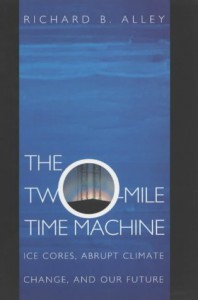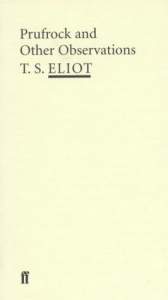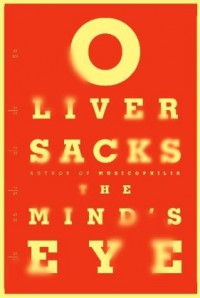How to destroy community

Adiga's constellation of Vishram Society inhabitants are well furnished with religious backgrounds, family histories, personalities and motives, but efforts to foresee the twists in the tale are foiled by human unpredictability. Heroes and villains reveal unexpected facets throughout; the murderer finds a conscience; the friend tears up the token and changes sides; the loving mother goes absolutely all the way for her disabled son...
On reflection, I've come back to thinking how it's structures that matter; what structures enable fellow-feeling, what kinds of structure erode it? How does imperialist capitalism atomise people and colonise their will?
Behind these overlapping wires she saw banyan trees; all of which were hemmed in by the fencing; except for one greying ancient, whose aerial roots, squirming through barbed wire and broken glass, dripped down the wall like primordial ooze until their bright growing tips, nearly touching the pavement, brushed against a homeless family cooking rice in the shade; and with each root-tip that had beaten the barbed wire the old banyan said: nothing can stop a living thing that wants to be free.
 3
3

I really dislike this kind of writing - I'm impatient for it to do something! Of course, this says more about me than about Calvino, who imagines prolifically and writes prettily, but I'll keep clear of his work after this.
"You take delight not in a city's seven or seventy wonders, but in the answer it give to a question of yours. Or the question it asks you, forcing you to answer, like Thebes through the mouth of the Sphinx."
 2
2
Incantation

I am spellbound by Woolf's powers of description; she lays out a feast of adjectives and metaphors, weaving a shimmering tapestry of words, here forming a continuous surface without break of tone. Exposition is forbidden to intrude on the musical flow of language and the 'six sided' inner voice carrying the narrative is only interrupted by the simple frame device of a passing day on a deserted beach
The gift Woolf displays here is for putting sensations, the delights and torments of being alive, from the humblest to the most monumental, into words; however it is not grateful recognition I feel but a sense of initiation into the mysteries. I am pushed beyond the limits of my experience; Woolf shows me how to feel as Bernard, as Jinny; I cannot impose my own, old ways of feeling on them. Both the pleasure and significance are respected.
 2
2
Hot solid science

This is a fascinating chronicle of the Earth's climate, as subtly encoded in two miles of Greenland ice. Alley describes his work and that of fellow climate historians with clarity and infectious enthusiasm, painting a vivid picture of a violently fluctuating and generally inhospitable planet currently coasting through a rare period of warmth and stability that has enabled a sensitive species like us to thrive.
Alley's work makes some valuable sense of the Byzantine complexity of our climate, but while the correlations and causalities offer clues, he is too scrupulous to offer firm predictions of the consequences of humans releasing carbon into the atmosphere and pressurising other resources. However, he points out un-nervingly that the climate is 'like a drunk; left alone it sits; when pushed, it staggers'. If our climate's history has been a rough ride, there doesn't seem much hope we'll be spared the bumps in future, with ever more extreme weather on the cards: floods, droughts, hurricanes, sea level fluctuations, extreme heat and cold are all more likely in a warmer world.
 3
3
Strangely neglected gem

Berridge is a generous-spirited radical, inhabiting every perspective with insight and commitment. Her aristocrats have virtues which she values and which redeem them personally, but do not justify their overprivileged status.
The critical even-handedness Berridge so masterfully deploys is, I feel, particularly effective in 'Snowstorm' which explores the fraught emotional territories of motherhood and medicine to reveal the debasing potential of certain ethics of care and self-sacrifice. In the delicately nuanced comparison of a worldly young pregnant woman and a female gynaecologist in charge of a maternity hospital under the chronic additional tension of evacuation, Berridge allows the latter bitter envy, and a measure of consolation.
 3
3
Expelling the Dust

Expelling the Dust
'The Man on the Stairs' (book club read)
The Man on the Stairs is an extended snapshot in a woman's life, in which a familiar (July gives it a tired, worn out feeling, like the T-shirt the woman is wearing, doubtless ugly and shapeless, unloved, a stultifying comfort-zone) sequence of introspection culminates in an encounter that takes on a mythical (as a focus for culturally cultivated fears and a seed of exasperated, unheroic (profoundly female) courage) and symbolic (of the emotional subjugation of women). It ends with what I felt was a victory, but one so bitter and compromised that I sobbed reading it, when the woman 'expel[s] the dust of everything' this subjugation has caused her to destroy in herself, and orders the phantom, the great unintentional criminal 'out of my house'. She can only muster a whisper, but we have to start somewhere.
Rest of the book:
I cannot agree with reviewers who found July's stories 'laugh out loud funny'; I am horrified by the thought of someone laughing at the plights of her painfully unhappy protagonists. July's language stutters and chokes as each internal monologue unfolds its ugly revelations, almost as if recoiling in disgust.
Loneliness, insecurity and ineptitude are the prominent features of adulthood here, and encounters that allow the narrators to offer care or fellowship to a child emphasise a contrast with their interactions with 'normal' people who treat them with varying degrees of disdain and disinterest. I don't think July invites laughter, rather that she is tenderly drawing out poison from a wound so deep it contaminates all of our interactions.
Attempts to seek refuge and refreshment in the joyous diversions (in the sense of randomness and original thinking, an escape from the stale frameworks of normalised communication) of innocence are limited and compromised, and the grains of hope they contain are sometimes dashed, but there is the shadow of a feeling, maybe even a furious whisper, that things don't have to be this way.
 3
3
Desert journey

In a sense, this is writing back against cliche and misconception, and deserves reading for that reason. It takes the form of a presumably partially fictionalised autobiography describing the austerity and simplicity of life in a rural Saudi Arabian village. I found Ahmed's affection for his Sister and Mother touching, but the story sometimes very difficult to follow!
 3
3
Vegetal friends

A series of etchings and a series of poems shuffled together… with the shared central idea that plants resemble us. This might sound sugary but it's not! Uncomfortable throughout, with its richly sensuous descriptions, and at times dark and even menacing, this collection of personalities and figures invokes disgust and sympathy.
Humanising plants or painting people as vegetation, Oswald and Greenman ultimately succeed in enlarging the humanity of the reader, who must overcome revulsion to feel for these characters, at whom the authors will not tempt us to sneer.
 4
4
In the highest possible register

Whitman starts off in a grandiose and expansive style and never shifts from it, staying in the highest possible register at all times. While his poems are individually titled they form a single mass of life-affirmation and Whitman's own style of patriotism and religious devotion.
Most interesting to me is Whitman's highly ambiguous attitude to gender and sexuality. He calls for equality, and reveals an odd mixture of traditional and progressive views. His motifs sometimes recall Spartan ideals. Homosexual notes are sounded with an unwilling sincerity.
 4
4

The Lovesong and the other works here are full of navel-gazing reflections on the inexplicable fixations and frustrations of emotional life, throwing up frequently resonant physical details, framed with a self-consciousness that sometimes cloys or annoys, and sometimes inspires deep sympathy.
 2
2
Folk Ballad of the South

McCullers' voice in this haunting tale (like that of Ngugi wa Thiong'o in A Grain of Wheat) often takes on the folk ballad posture of an anonymous (or perhaps dispersed) community member. She labours over the authenticity of this tone, fleshing it with a complete vocabulary of cultural experience available in the town, emphasising its remote status and insularity without superiority, and often repudiating stereotype. Despite this refusal to retreat to the default god-author position, she is able to create many spectacular 'filmic' moments, particularly with the final coda describing the music of the chain gang.
McCullers foreshadows compulsively; almost everything that occurs in the story is hinted at, and sinister inevitability dogs the halcyon days of the middle section. Surprisingly then, the denouement still astonishes; the folk myth tapestry is completed by a dramatic climax, a (literally) monstrous twist, and a lingering mystery.
 4
4
Riches!

An outstanding collection, inspiring me to read more of the work of many of the authors featured:
Nadine Gordimer - The Ultimate Safari
A tale of asylum-seeking in Mozambique from the point of view of a young child, whose unworldliness enables Gordimer to draw a painful contrast between the lives of African people and the experience of tourists visiting the sub-Saharan area
Amy Tan - The Joy Luck Club
This story was a breath of fresh air for me and I fully intend to seek out the original collection. Tan's most famous story is truly original, providing a rare and deep insight into Chinese cultural attitudes and history, and the intergenerational tensions engendered by migration.
Ana Menendez - In Cuba I Was a German Shepherd
Menendez fleshes this simple series of vignettes with rich and poignant detail, the precious material of cultural memory. The perpetually frustrated hope of a diaspora in long-term exile is balanced with humour and the imperfect compensations of life in America
Roxana Robinson - Mr Sumarsono
Robinson tells the simple tale of a visiting diplomat from the viewpoint of the well-meaning but vulgar and ignorant hostess's young daughter, who is disgusted by her mother's behaviour. Mr Sumarsono is angelic and oblivious, and his vision purges all impurities from the hosts kindness. The transformative potential of cross-cultural meetings is richly hinted at in this clever and finely crafted story.
Bernard Malamud - The Last Mohican
Malamud's protagonist's experience is full of delicious novelty, and the deeper resonances are many, reaching into complex collective notions of fellowship, shared history and responsibility.
Alan Silitoe - Pit Strike
The first story I have read by Silitoe, who relates this unusual anecdote in a refreshingly unembellished style, while the scriptural leanings of the protagonist give his actions a stylish tone of mythical heroism
V.S Naipaul - One Out of Many
I first read this with In a Free State and it's made an indelible impression. Naipaul is masterful in telling the incisive tale of servitude transported, giving each character due measure of inherent decency, self-interest and flawed humanity. The uncomfortable meeting of worlds is all the more resonant because stories from the point of view of servants are so unusual. Over and over I was confronted with my own privilege and prejudice, and forced to think again. It's also a radical story of emancipation and readjustment, entirely without utopian illusions.
 2
2
Mysteries of the seen

These latest fascinatingly annotated case histories from Sacks are as ever made wonderful by the rich and tenderly observed personal context of each patient. Most poignantly, he writes of his own experiences of lifelong prosopagnosia (poor facial recognition and sense of direction) and the distressing loss of his stereoscopy due to cancer.
Moving and at times painful, this book is as compulsively readable as Sacks' first publication, illustrating how endlessly wonderful and strange is the half-mysterious country of the mind. In this work the theme of visual perception is mined, starting from alexia and proceeding to the surprisingly diverse visual experiences of blindness.
 6
6
Sung true

Brief and tragic story of a life shattered by brutality. The imagery is fresh and poignant in the unnamed protagonist's extended letter to the object of his fatal teenage passion; simplicity gives the work poetic force, like a really good pop song.
For me the best aspect of the book is the kindness shown to the protagonist by the poet Abbas, which is beyond formality and habit.
 4
4
Flowing to freedom

A Grain of Wheat centres a political narrative about the struggle for independence and liberation in Kenya; about rebellion against British imperialism, and on this level it is searing, laying bare the injustice from the point of view of a richly varied cast of rural Kenyan people. Ngugi draws on Conrad to nuance the idealistic, but cold and inhuman character of the white DO, Thompson. He gives space to the character of each of the people in the village, revealing their motives in all their ambiguity and mystery.
The book shifts its tone from the magnified detail of the psychological novel to the broader framing of folk-anecdote and the rhythmic transmission of oral tradition, addressing the reader as an unidentified 'I', encompassing the village and sinking, a polymorphous identity, into the crowd. This innovative fluidity is refreshing to my spirit and allows an unusually rich and multifaceted emotional resonance to build. Often phlegmatic, the narrative gathers force and power as it patiently traces each person's tributary of recall to the communal estuary.
 3
3

My favourite of her books.
Incisive and uncompromising, this diverse series of vignettes contains women of all stripes, vibrant vessels for Duffy's kaleidoscope of reflections on relations between women and men, the roles and experiences of wives and lovers. Her protagonists are everything but passive, and Duffy takes every view but the easy and obvious.
 2
2


